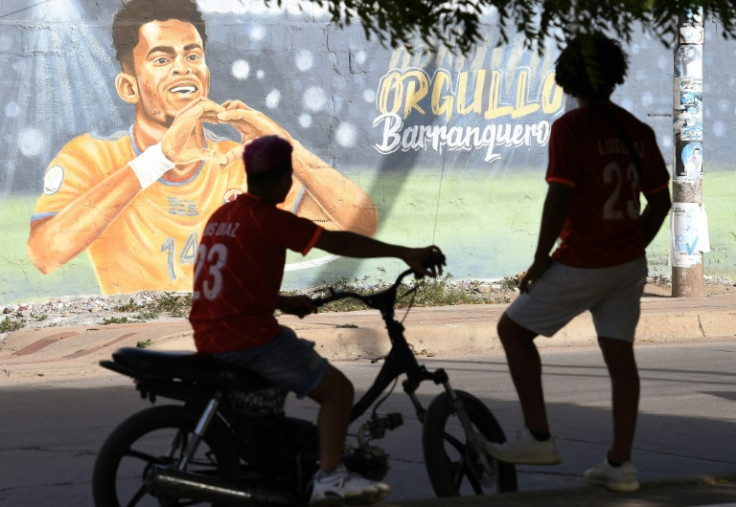
Colombia said Friday the ELN guerrilla group will release the father of Liverpool footballer Luis Diaz, whom it abducted five days ago as it engaged in peace talks with Bogota.
Interior Minister Luis Fernando Velasco told reporters that ELN representatives at the negotiations had indicated to government counterparts "that he will be released."
He added that "a safe area will have to be agreed" upon for the handover to happen.
The Liverpool striker's mother, Cilenis Marulanda, was rescued hours after the pair were abducted in their home town of Barrancas near the Venezuelan border on Saturday, but his father, Luis Manuel Diaz, has been missing ever since, sparking a massive search.
On Thursday, the government said a unit of the ELN, or National Liberation Army, had taken the older Diaz, and demanded his immediate release.
The ELN and the government of leftist President Gustavo Petro are in the midst of peace negotiations and a six-month ceasefire, which entered into force in August.
The president Friday expressed his "deepest rejection not only of the kidnapping of Luis' father, but also... that it (the ELN) has not yet been able to release him."
Petro was in Washington attending an Americas economy summit.
"As time passes, the conditions in which Mr Diaz finds himself are becoming very dangerous" the president added, urging "an immediate effort" to free the hostage.
The army said more than 250 soldiers were involved in a search by air and land for Diaz, aged 56, according to local media.
"The operations... have not stopped for a single second," said Commander Llair Gonzalez of the specialized anti-kidnapping unit.
Liverpool manager Jurgen Klopp said Friday that Luis Diaz -- who has not spoken out about the kidnapping -- will decide for himself whether he wants to play in a Premier League match against Luton on Sunday.
The player "is quite shaken by this situation, he is very close to his father," Carlos Jimenez, a cousin of the elder Diaz told AFP in Barrancas.
The ELN, Colombia's last recognized guerrilla group, started as a leftist ideological movement in 1964 before turning to crime -- focusing on kidnapping, extortion, violent attacks and drug trafficking.
More than 38,000 people have been kidnapped in Colombia over the years, mainly by groups raising funds with ransom money.



